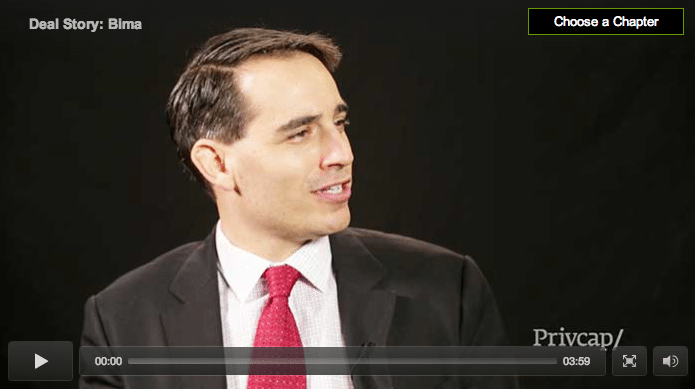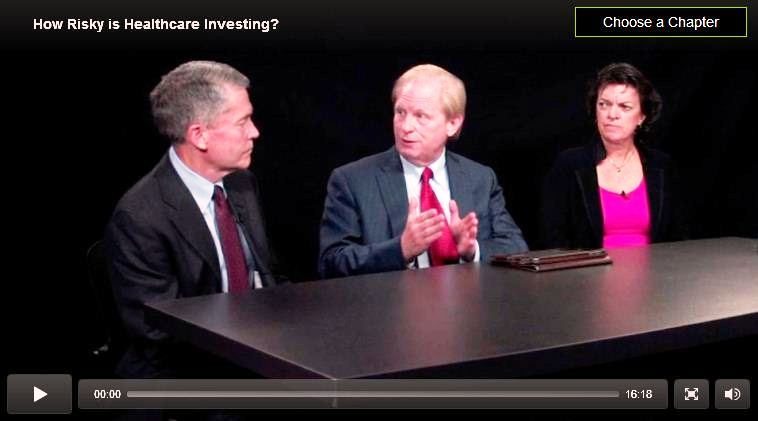The Healthcare Opportunity
It’s widely accepted that healthcare spending will be an ever-growing part of the U.S. economy, but that consensus is of little comfort to those hoping to profit from it. That’s because the size of the opportunity is matched by its complexity. Few industries are as susceptible to the whim and wisdom of policymakers, the central planners who not only approve medications but, in many cases, decide who gets covered, for how much, and by whom. We spoke with three experts in the healthcare space—Tammy Hill of RSM, Sherrill Neff of Quaker Partners, and Jim Elrod of Vestar Capital Partners—to help cut through the regulatory fog and provide practical solutions to the challenge facing private equity investors.
Management and execution are critical in today’s uncertain healthcare environment
The healthcare industry is volatile. Technology is constantly and rapidly evolving, and government efforts at reform have injected additional uncertainty into the market. In this environment, highly skilled management teams are critical.
“It used to be an old saw,” said James Elrod of Vestar Capital Partners. “Give me an ‘A’ management team and a ‘C’ business any day. We all used to pay lip service to it, but it’s really true. To hear the CEO’s or the entrepreneur’s plan on how they’re going to build out the team to realize the opportunity is much more important than it used to be because of the changing landscape. To have confidence that this person has the vision to do that is really important these days.”
Private equity firms don’t want to buy a company and watch the management team retire to a beach somewhere. They need the team to stay on, execute the plan, and drive success.
“That’s absolutely true in the deals we see,” said Tammy Hill of RSM. “Most of the entrepreneurs in the healthcare sector, as opposed to an older industry like manufacturing, these are relatively young entrepreneurs, and our clients aren’t interested in seeing them go away. Part of the investment they’re making is in the management team, the top level of management.”
Reimbursement and “government” risks are hard to measure and fatal if miscalculated
Healthcare investing has always involved uncertainty around reimbursement, regulation, and other “government” risks—politicians doing things that are hard to foresee. All the participants agreed that government risk is now at an all-time high, not only because the White House is pushing through reform but because the government is such a dominant force in healthcare regulation and payment.
“Almost all the products that come through our companies have to deal with the Food and Drug Administration,” said Sherrill Neff of Quaker Partners. “And for the past five years, since the Vioxx blowup, the entire attention of the agency has been shifted to the safety end of the pendulum.”
Once a product is approved, a company has to figure out the reimbursement end of the equation—and here again, the government plays a heavyweight role. Neff pointed out that the federal government now provides 45 cents out of every healthcare dollar spent—and predicts that spending is very difficult.
“Our experience has been that you’re pushed into the consulting world, maybe with former
administrators, et cetera, to give you a sense of what it was like when they were there,” he said. “But it’s a new game, and I’m not sure that anybody’s crystal ball, in terms of the next two or three years on the federal level, is going to be worth a lot.”
Some healthcare sectors should be avoided altogether
All three participants said there are some sectors of healthcare where the risks make investment unwise. Elrod said capital-intensive services in the target zone for reimbursement cutbacks don’t look good for the next three to five years, even if they’re services that are in demand.
“Nursing homes would be an example,” he noted. “Very much a needed service, but the reimbursement focus that they’ve experienced recently and the cost of admission—where you’re kind of a genius if you have 93% occupancy and struggling if you have 89% occupancy—means it’s just not an equation where it makes sense.”
Neff said there are areas of therapeutics his firm “absolutely avoids,” including large-market drugs that require extensive patient-safety data and clinical trials, and “me too” products like stents. Tammy Hill said clients of RSM are steering clear of companies whose profits depend on long treatments that historically have not had good outcomes. “It’s more about the innovation and how can you improve the outcomes, how can you get people out of the hospital.”
Companies that provide cost-saving care and products are best bets
The most urgent issue in U.S. healthcare is cost. This logically makes companies with products and services that cut costs attractive investments. “One of the themes that we’re quite focused on as investors right now is how to tackle significant problems in medical care or medical delivery with solutions that are both cost-effective and result in better quality,” Neff said.
He gave an example, a recent Quaker Partners investment called NovaSom. The company sells an in-home device for diagnosing sleep apnea, a condition that affects some 28 million Americans and is linked to a wide range of very expensive, very serious medical conditions, from cancer to heart disease.
People who suspect they suffer from sleep apnea have traditionally checked into a clinic run by a hospital to spend the night hooked up to an array of electrodes and sensors. It’s uncomfortable and expensive—anywhere from $1,500 to $3,000 per night—preventing more patients from getting tested.
NovaSom appeals to payers because it cuts costs and helps more people get diagnosed for sleep apnea before the disorder leads to more serious and expensive conditions. NovaSom appeals to patients because they don’t have to spend the night in a hospital bed. “We can put into patients’ hands something that’s less costly for the payers—and they can significantly increase their volume without increasing their overall cost and get more people on appropriate treatment,” Neff said. “That’s typical of a theme that we’re trying to address.”
Regularly update due diligence to reflect the changing environment
Due diligence is a vital step prior to any investment. But the areas of concern change over time. What was diligence a few years ago could be negligence today. In an industry shifting as quickly as healthcare, private equity partners must constantly update their list of red flags.
Elrod said Vestar now pays particularly close attention to organizational details. “One of the items we look at is not whether the entrepreneur or the CEO has simply a vision for where the business could go but whether they’ve got the organizational chart plotted out on what they need to do to make the investment thesis come to fruition.”
Hill said several high-profile cases of payment fraud in the past decade have forced much closer scrutiny of reimbursement, especially government reimbursement. “In a situation where the up-front diligence would start to point out potential problems on the billing or the collection side, it would most likely be a deal killer.”
Neff agreed that reimbursement must be an area of concern in any healthcare investment. He said Quaker Partners has walked away from several seemingly attractive deals recently because the reimbursement now enjoyed by those companies was “too good to be true.”
“In one case, since we turned down the deal, other people invested, and it has in fact proved out the way we suspected it would.”
He agreed that GPs these days must be able to find companies that create value and, just as important, dodge those deals that will destroy value. “We make all our partners take dancing lessons.”
We spoke with three experts in the healthcare space to help cut through the regulatory fog and provide practical solutions to the challenge facing private equity investors



